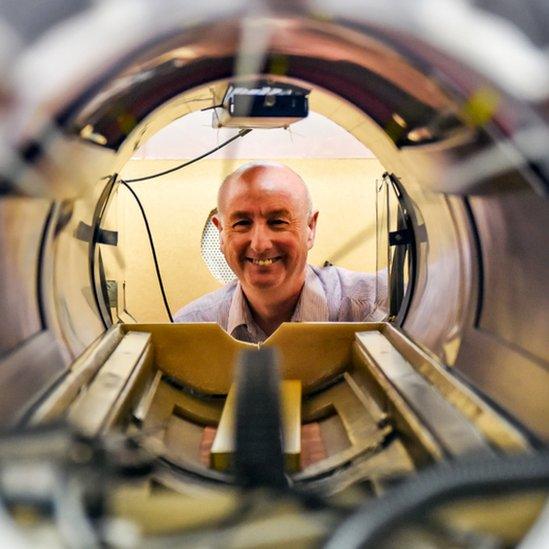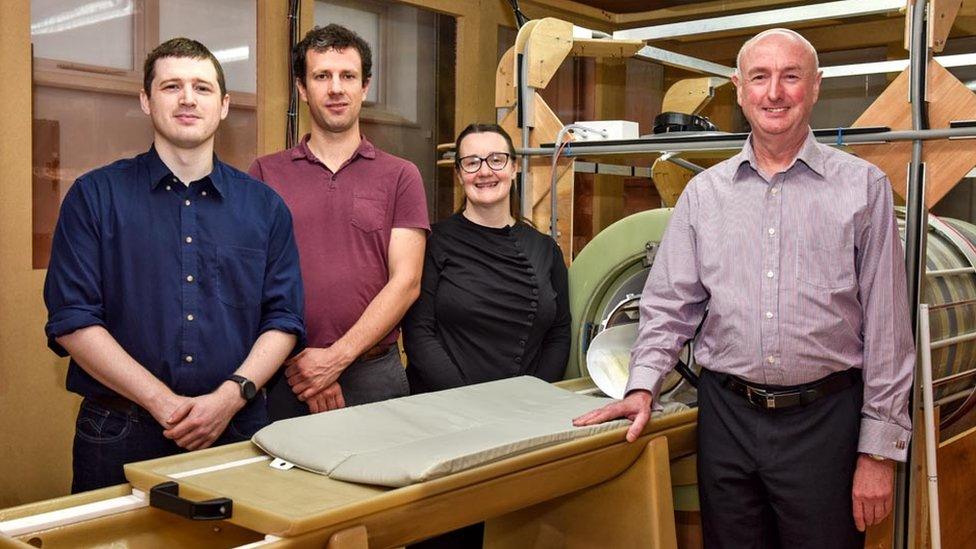New scanner 'like 100 MRIs in one' developed in Aberdeen
- Published
- comments

Prof David Lurie said it was an "incredibly exciting" development
A new kind of scanner which has been likened to "100 MRIs in one" has been developed by a team at the University of Aberdeen.
Patients in Scotland have become the first in the world to be scanned with the Fast Field Cycling magnetic resonance imaging equipment.
The aim is to extract more information than a traditional MRI by switching the strength of the scanner's magnetic field during the procedure.
It was developed over 10 years.
Magnetic resonance imaging uses strong magnetic fields and radio waves to produce detailed images of the inside of the body.
The patients involved with the new equipment so far had all suffered strokes.
It is hoped the extra information coming from Fast Field Cycling MRI will help doctors to better plan treatment and monitor recovery.

The research team hopes the technology can be adopted by hospitals
Prof David Lurie, who led the team, said: "Because Fast Field Cycling scanners can switch their magnetic field, it is almost like having 100 different MRI scanners in one.
"This gives an extra dimension to the data collected from each patient, greatly expanding the diagnostic potential.
"It is incredibly exciting to have imaged our first patients.
"This is a major step towards our technology being adopted by hospitals to benefit patients, which is the ultimate goal of our research."
One of the first patients in the study, 81-year-old Richard Johnson, said: "This is a very exciting project.
"I am full of admiration for the development and construction of this sophisticated machine, and the aims behind it. I wouldn't have missed this interesting session for the world.
"I saw one of the early prototype Magnetic Resonance apparatuses around 1964 or 1965 - which is partly why I was so excited to be a guinea pig in, and to be lucky enough to be shown round, the new machine."